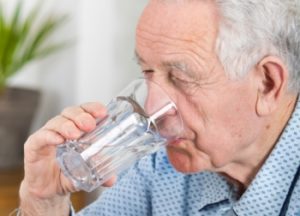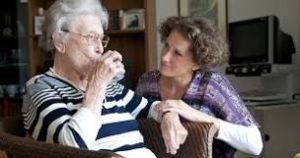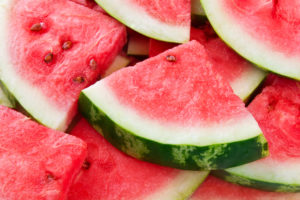Elderly Dehydration
Today I will be wrapping up a series on dehydration in the elderly. The importance of staying hydrated cannot be overemphasized, especially during the dog days of summer. I first researched and shared what the benefits of staying hydrated were. I followed that up with what experts say is the recommended fluid intake for the elderly.
The focus today will be on how to treat dehydration. First, though, let’s look again at a simple definition and some of the more common symptoms.
Symptoms of Dehydration

The simplest definition of dehydration I found is one by the Mayo Clinic. Simply put, it is the” excessive loss of body water.”1 Among seniors, dehydration is the cause of a host of other problems. This is why it is often unnoticed by healthcare professionals. According to Dispatch Health, a mobile healthcare provider, the most common dehydration symptoms of the elderly include:
- Muscle weakness
- Lethargy
- Dry mouth
- Headaches or dizziness
- An inability to sweat
- Low blood pressure
- Rapid heart rate
- Fatigue
- Confusion
“Severe dehydration is marked by shriveled skin, a sunken look in the eyes, low blood pressure, and delirium. “2 In severe cases, a trip to the ER may be necessary. Milder cases, though, can be treated on the spot with one of several simple common-sense strategies.
Dehydration Treatment

Writing for News-Medical Life Sciences, Dr. Ananya Mandal, M.D., states “In cases of mild dehydration, for example, drinking plenty of fluids such as water, semi-skimmed milk, diluted squash or fruit juice may resolve symptoms. Also, a sweet drink can help to restore sugar levels and a salty snack can rectify any salt loss.”3
Water is not the only available solution for dehydration treatment. Alternatives include coconut water and fluids that are high in electrolytes. When someone is suffering from dehydration there are foods high in water content foods that will help with rehydrating.
What to Eat When Dehydrated

Citing numerous medical references, Madison Conley, a journalist for Insider.com, shares several foods high in water content that can help to quickly rehydrate seniors suffering from dehydration. Included are watermelon, grapefruit, cucumbers, spinach, celery, cottage cheese, soups and broths, yogurt, radishes, carrots and blackberries.4
Proper hydration is important for remaining independent. Adult children and other caregivers need to remain vigilant, making sure that their elderly charges are not dehydrated. Severe dehydration can have serious consequences.
I hope that as a caregiver, an adult child of an elderly parent, or other healthcare professionals you can see how important it is to make sure that seniors are properly hydrated. I’m not sharing anything new, just adding to the list of things that help the elderly remain independent.
I invite you to share below any thoughts or stories on how hydration has helped you or a loved one.
Footnotes:
1). https://www.mayoclinic.org/diseases-conditions/dehydration/symptoms-causes/syc-20354086
2). https://www.dispatchhealth.com/blog/top-signs-of-dehydration-in-the-elderly/
3). https://www.news-medical.net/health/Dehydration-Treatment.aspx
4). https://www.insider.com/foods-to-eat-when-youre-dehydrated-2018-10


Recent Comments